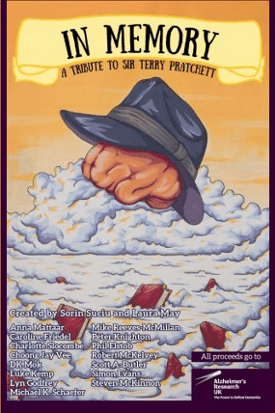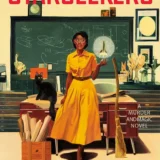
- Paperback: 318 pages
- Kindle:3325 KB
- Paperback: $11.80
- Kindle:0 (KindleUnlimited)
- Publisher: CreateSpace Independent Publishing Platform (October 2, 2015)
- Language: English
- ISBN-10: 1517603609
- ISBN-13: 978-1517603601
- Product Dimensions: 6 x 0.7 x 9 inches
Dying is easy. Comedy is hard. And comedy combined with speculative fiction, whether fantasy or science fiction, is even harder.
I think of humour as drama plus: it has to do all of the same things as drama (have interesting characters and an involving plot) and it has to make people laugh. Humourous speculative fiction is drama plus plus: it has to have the same elements as drama, it has to make people laugh and it has to satisfy the expectations of the genre it aspires to. So, for example, a humourous science fiction story has to have time travel, robots or other elements specific to the genre, while a humourous fantasy story has to have witches, dragons and/or other elements specific to that genre. That’s a lot of balls for an author to juggle, especially in a short story; it’s easy to see why it often isn’t successful.
Knowing how hard the trick is makes it all the more amazing that an anthology like In Memory: A Tribute to Sir Terry Pratchett, edited by Sorin Suciu and Laura May, is so consistently amusing, with occasional touches of utterly hilarious brilliance. For readers who enjoy their spec fic with a dose of laughter, this is a must read.
As the title suggests, the anthology was pulled together shortly after the beloved fantasy author’s death as an homage to his work. The theme of the stories, the majority of which are fantasy although a small number are science fiction, is memory, an acknowledgement of the fact that Pratchett died of Alzheimer’s, a disease which destroys that most personal, intimate quality of human beings.
The variety of approaches to the theme of memory is breathtaking: from Luke Kemp’s “Thanks for the Memory Cards,” where a man with a chip in his brain that allows him to replay memories has to go back over them when he inexplicably finds a bullet in one of his pieces of lawn furniture to Peter Knighton’s “How Fell the Towers Three,” which details the negotiations between a bard, a king and some courtiers over how a successful battle will be remembered in song; from “There’s a Tattoo, But the Robes Hide It,” by Mike Reeves-McMillan, about a royal consort who is looking for a way to get out of her marriage to a brutal, but ultimately boring evil king, to May’s “The Shells of Lethe,” which is about two con artists who come upon a town where people use magical shells to suck bad memories out of their minds, making them ripe for exploitation. Despite what might seem to be a limited premise, there is little overlap or repetition in the stories.
Few of the stories deal directly with Alzheimer’s, preferring to use fantastical metaphors for memory loss (fantastical metaphors which, unlike the real disease, are often reversible). One exception is “The Tale of the Storyteller,” by Caroline Friedel. One day, a young man’s magical kingdom starts winking in and out of existence, being replaced by a bleak, mundane world. He seeks the magician who created the world and finds that the man’s magic is storytelling, but the storyteller is old and losing his memory (although Alzheimer’s is not named, he is clearly suffering from some form of age-related dementia), which is what threatens the magical realm. The trope of the world being created out of a story is quite worn at this point, but “The Tale of the Storyteller” has a new and welcome twist: when the young man takes over from the aging storyteller, renewing the world, readers are left with the positive message that although the storyteller (in this case, a metaphorical Pratchett) may die, storytelling will continue.
Each story is preceded by a short introduction by the author about its genesis, often referring to Pratchett as a seminal influence. It’s a bit odd, then, that few of the stories actually reference his work. There is the line, “‘Odd’ was part of the fabric of life here (though fortunately, this world did not require the help of large reptiles to carry it through space).” in Friedel’s story, and one or two others. This may, however, be for the best: it allows the authors to tell their own stories in their own voices rather than risk being seen as slavishly derivative.
Few of the stories achieve Pratchett’s sublimely consistent sense of absurdity, but this is to be expected (did I mention that this is hard?). Steven McKinnon’s “The Vividarium” is one exception: the God King of All the Universe (Dave) shows off a creation he is proud of to the Celestial Sculptur and Curator of the Cradle of Life (Sid), an object which contains all memories created throughout time and space. This story starts funny and just keeps getting funnier, as does Choong Jay Vee’s “The Olivie Crowne Affair,” about a woman who accidentally uses a computer programme to unleash a world-destroying mechanical bull created by Leonardo Da Vinci into the world.
Even if they do not live up to this standard, every story in In Memory has – ahem – memorably funny writing. The opening line of the collection, for example, from “Thanks for the Memory Cards,” is: “Neuroscience is both awe-inspiring and depressing, like a luxurious wall-to-wall carpet consisting entirely of kitten pelts.” Or, “His voice is deep and rugged – so manly that it must surely come with its own chest hair.” (“Doris,” by Sorin Suciu) Comic, yet somehow appropriate, metaphors abounded.
In some stories, the humour is built directly into the concept. In “Ackerly’s Genuine Earth Antiques,” by Michael K. Schaefer, for instance, the explanation for the uses of various objects which are common today but are rare in a future where humanity has left the planet Earth are hilarious.
FULL DISCLOSURE: I applied to submit a story to this anthology, but was politely rejected (the editors took the time to write to everybody who applied which, given the very tight deadline they had set for themselves, was admirable). I suppose this should have predisposed me to not liking In Memory, but, honestly, I’m starved for good humourous genre fiction, and this book is very good, indeed. And the best part? All proceeds from sales of the book will go to Alzheimer’s Research, UK, Pratchett’s favourite charity.
You do a good deed and get a great read – why haven’t you ordered In Memory already?








